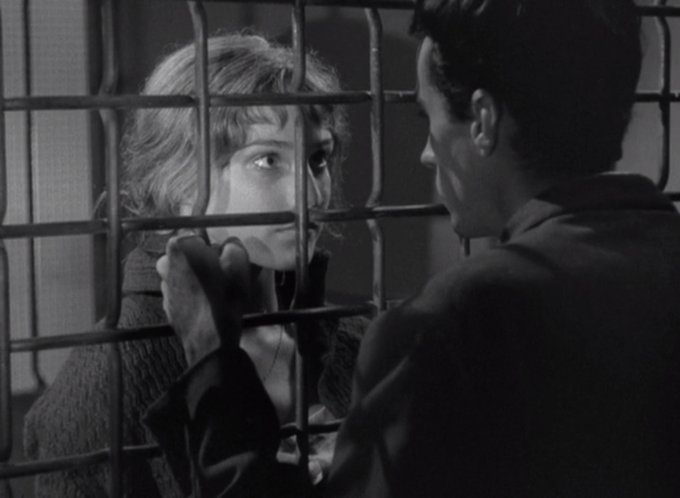
At first glance, Robert Bresson seems like an incompetent director. In Pickpocket, his actors move stiffly, reciting their lines with hardly any emotion; he skips over what seem like important dramatic moments and lingers on seemingly trivial ones; background music is rarely used, and it shows up in unexpected places when it does; and his star speaks more lines in voiceover than through dialogue.
It was decisions like this that led filmmaker Paul Schrader, in an introduction to the Criterion Collection edition of Pickpocket, to call Bresson a “perverse” director. Schrader was not pointing some kind of moral aberration in the director, however. Instead, he meant that Bresson’s style works in ways that run counter to traditional filmmaking. That is, where most directors would add elements and flourishes to underscore their storytelling, Bresson takes things away, keeping the audience off-balance and stripping the story down to its most elemental components.
Pickpocket follows Michel, a rootless Parisian man whose life seemingly consists of two things: thieving and brooding in his room. He has an ill mother whom he rarely visits, even though he says he loves her more than he loves himself. His only other human connections are with his pickpocketing accomplices and with Jeanne, a woman who lives next to his mother.
In one scene, Michel espouses his philosophy: “Can we not admit that certain skilled men, gifted with intelligence, talent or even genius, and thus indispensible to society, rather than stagnate, should be free to disobey laws in certain cases?” When asked how these supermen should be selected, he replies that they will select themselves. He considers laws absurd and tells Jeanne, “I believed in God for three minutes.”
Bresson allows Michel to continue on his destructive path, presenting his crimes as matter-of-factly as possible. In the preface to the film, Bresson emphasizes that Pickpocket is not a thriller; instead, it expresses the nightmare of a man whose weakness leads him to theft, but that also leads two people to meet who might not have otherwise done so.
It is in this meeting, which comes only after Michel’s prodigality has finally run its course, that Pickpocket at last allows a glimpse of emotional release and spiritual connection. The moment is made all the more effective because of the restraint Bresson has imposed on the rest of the movie. He knew what he was doing all along.
—Tyler Petty, (2010, from his blog Faces Unveiled)
Arts & Faith Lists: